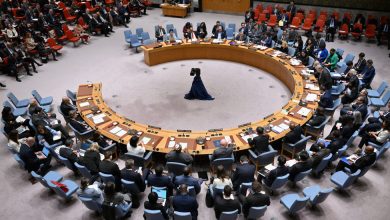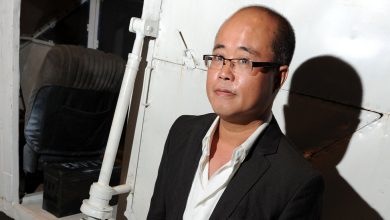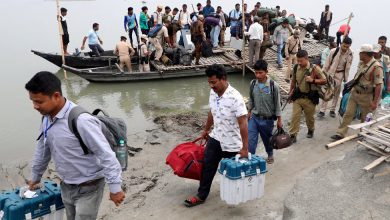A slate of foreign policy crises awaits the new chancellor.

Rarely has a German leader come into office with so many burning crises.
When Olaf Scholz is sworn in as chancellor in early December, he will have to deal with a surging pandemic, tensions on the Polish-Belarusian border, a Russian president mobilizing troops near Ukraine, a more confrontational China and a less dependable United States.
“The pressure is huge,” said Jana Puglierin of the European Council on Foreign Relations. “The new government is taking office in a situation that has been heating up on multiple fronts.”
Foreign policy was barely discussed in the election campaign but it might well end up dominating the first months of the new administration. With Germany taking over the presidency of the Group of 7 in January, Mr. Scholz will immediately have the spotlight on him on a host of pressing international questions.
Few analysts expect Mr. Scholz to change course significantly from Ms. Merkel.
To those of Germany’s allies who are hoping for a more robust stance on China and Russia and an increase in military spending that promise of continuity may be only partly reassuring.
“Many of our allies are yearning for more robust German leadership but they’re unlikely to get it,” said Thomas Kleine-Brockhoff of the German Marshall Fund.
With so many fires burning on the international stage and some structural geopolitical shifts underway, circumstances — and his more hawkish coalition partners — might force Mr. Scholz’ hand, Mr. Kleine-Brockhoff said.
In Europe, one of the first tests Mr. Scholz will face is how to deal with Poland, which has violated some of the democratic principles underpinning membership in the European Union but is also under pressure from neighboring Belarus, a Russian ally.
Mr. Scholz’ Social Democrats are traditionally dovish on Russia, supporting projects like the controversial Nord Stream 2 gas pipeline. But if Moscow launches another offensive in Ukraine, it would be a significant test.
On China, the picture is more complicated.
As Beijing has become more confrontational and German industry more outspoken about its dependency on the Chinese market, Germany’s China policy was ripe for evolving from the mercantilist soft touch of the Merkel era, analysts say.
“The German position will get tougher on China for structural reasons,” said Mr. Kleine-Brockhoff. “Mr. Scholz is no hawk. But he is not Merkel either and he will face pressure from the other parties in his government,” he said.
In the United States, Mr. Scholz does have a seeming center-left ally in President Biden.
But no one knows how long that’s going to last.
“We don’t know how dependable the Biden administration is and we don’t know how long it will be in power,” said Ms. Puglierin of the European Council on Foreign Relations.
As one of Mr. Scholz’ advisers put it: “Biden is America First, just more polite.”
As a result, Mr. Scholz will focus much of his energy on strengthening the European Union, his advisers say. His first foreign visit will be to President Emmanuel Macron in France, who faces his own difficult election campaign next year.
“We will talk a lot more about European sovereignty. We will sound more French. But in reality it will be hard to turn that into real policy,” Ms. Puglierin said.




